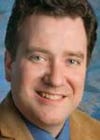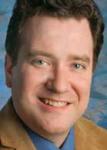Organic Salmon Facing Hurdles
WASHINGTON The National Organic Standards Board, the panel of experts officially appointed by the U.S. Secretary of Agriculture to assist the USDA in developing organic standards, has temporarily excluded from the USDA's forthcoming organic aquaculture standards any fish raised in open net cages, as well as fish that eat other, wild-caught fish in their diets. If adopted, these qualifications would
April 9, 2007
MATTHEW ENIS
WASHINGTON — The National Organic Standards Board, the panel of experts officially appointed by the U.S. Secretary of Agriculture to assist the USDA in developing organic standards, has temporarily excluded from the USDA's forthcoming organic aquaculture standards any fish raised in open net cages, as well as fish that eat other, wild-caught fish in their diets.
If adopted, these qualifications would preclude the vast majority of farmed salmon operations from ever converting to USDA organic production, and indicate that the NOSB currently may be leaning toward an organic aquaculture definition that would require enclosed tanks outfitted with water-filtration systems.
“The open net salmon cages are in the open ocean, where they discharge significant waste and excess feed. Sometimes, the pens break and farmed fish escape, introducing diseases and sea lice to wild fish populations,” said Andrea Kavanagh, director of the Pure Salmon Campaign.
The key idea behind the organic movement “is that you're supposed to be leaving the soil and the environment better off,” she said, explaining why Pure Salmon, along with the Coastal Alliance for Aquaculture Reform and the Center for Food Safety, is currently lobbying the NOSB to make the exclusion permanent.
This exclusion would pose less of a problem for farmers of shrimp, catfish and tilapia, many of which already operate enclosed tank systems. But for salmon — a larger, primarily oceanic fish whose popularity has risen as an increasing volume of studies tie its consumption to health benefits such as lowered rates of heart disease — the exclusion would pose a significant hurdle for earning the USDA organic seal.
Several seafood industry groups have expressed frustration regarding these campaigns, arguing that positive health messages in the mainstream press become clouded when activists link aquaculture products, such as farmed salmon, to contaminants such as PCBs, even as other groups complain about mercury content in wild-caught fish.
The confusion turns mainstream consumers away from the seafood category in general, and generates conflict among proponents of sustainability where there should be none, argue salmon farming operations.
“Wild salmon is supplying 15% of the world market,” notes Mary Ellen Walling, executive director of the British Columbia Salmon Farmers Association. Aquaculture operations, primarily in South America, Europe and British Columbia, meet the remainder of demand, she said, helping to solve another major concern of marine activists — the depletion of many of the world's wild fisheries due to overfishing.
“This is a negative, inflammatory anti-salmon farming campaign; it's not just about organics,” said Walling. “We're not an extraction agency, we're actually farming the seas.”
In an effort to bolster the salmon farming industry's reputation in British Columbia, Walling said that her association was now offering facility tours to interested distributors and retailers.
Pending its aquaculture ruling, the USDA has barred the use of organic labels on seafood. However, some foreign certification agencies have already established rules for organic salmon, requiring the use of low-density open-net pens, higher-grade feed and a prohibition on the use of chemicals to clean pens.
But these methods also pose problems, argued Kavanagh. Carnivorous fish, such as salmon, are fed large volumes of fish meal before reaching maturity, and those feeder fish have to come from somewhere — often from wild sardine and herring populations. This disrupts the feeding habits of several species of wild fish, she said. “You can't just take all of the forage fish out of the ocean. It creates an imbalance. That also doesn't meet the definition of organic.”
For many opponents of current salmon farming practices, this point is arguably more important than the issue of waste from open net pens. Pure Salmon and other groups say that the solution is to require similar, enclosed tank systems to raise feeder fish used in organic aquaculture operations. Such a requirement, however, appears less likely to survive the final recommendations by the NOSB, since existing USDA standards have long allowed the use of wild fish meal as a supplement to the feed of organic livestock.
About the Author
You May Also Like






